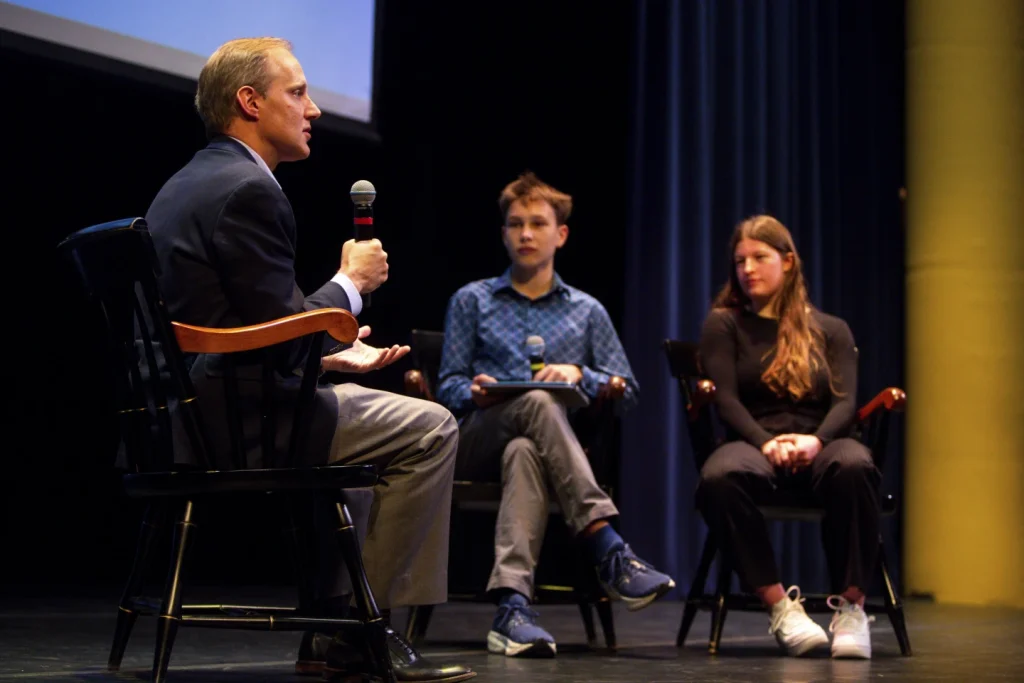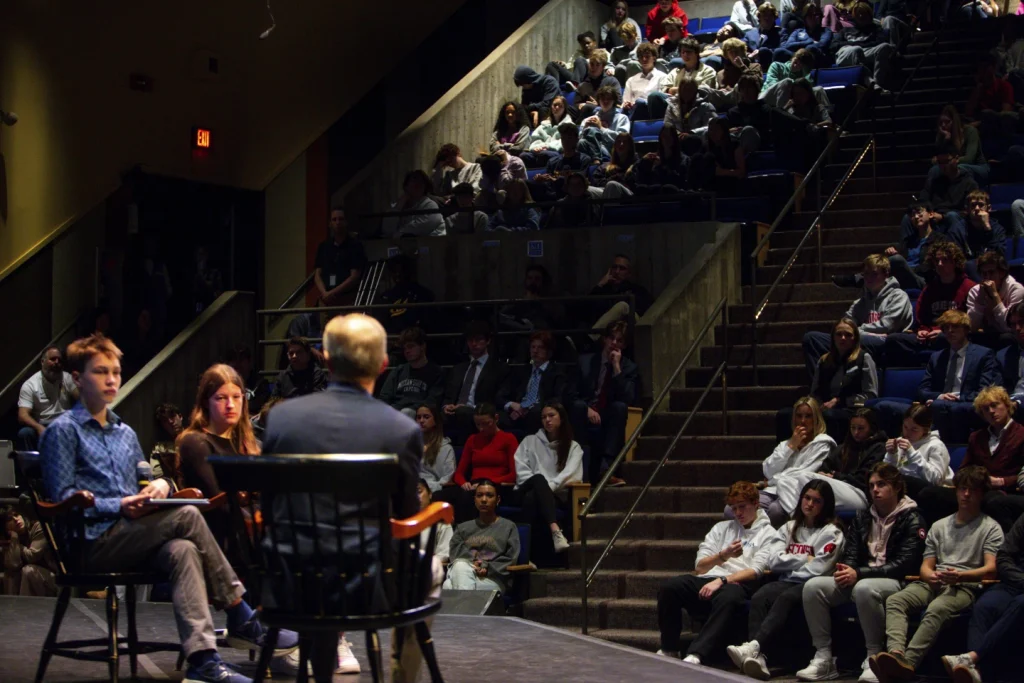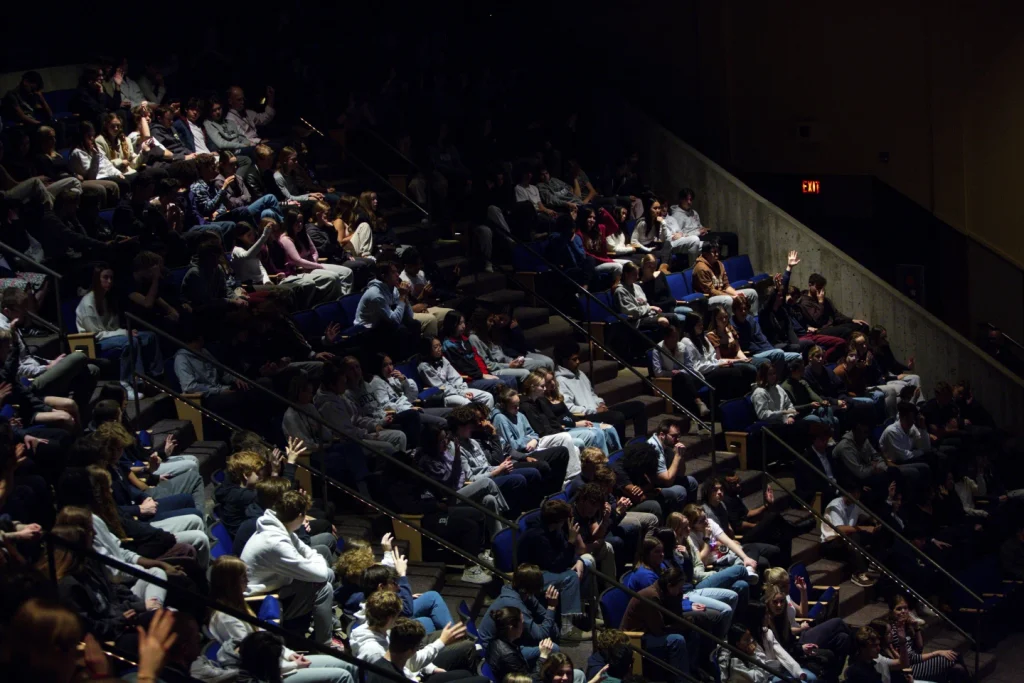The events of January 6, 2021, will forever be etched into the annals of American history as a day of infamy.
The storming of the U.S. Capitol by a frenzied mob, driven by baseless conspiracy theories surrounding the 2020 presidential election, not only shook the foundations of democracy but also laid bare the pernicious influence of misinformation in the digital age.
Nearly three years on, the specter of false election conspiracy theories continues to haunt the public sphere, proliferating across social media and cable news networks like an unchecked wildfire.
As we stand on the precipice of another presidential election, the very fabric of electoral integrity is imperiled by the erosion of safeguards and the proliferation of advanced technologies that facilitate the dissemination of misinformation.
This essay seeks to delve into this pressing issue, shedding light on the imminent threat posed by the unrelenting spread of falsehoods and the dire need for concerted action to safeguard the sanctity of democratic processes.
The aftermath of the 2020 presidential election witnessed a deluge of unfounded claims that sought to delegitimize the electoral process.
From the preposterous notion of suitcases brimming with illicit ballots to the insidious insinuation of deceased individuals casting votes, the public discourse was inundated with a torrent of falsehoods.
Regrettably, the persistence of these baseless conspiracy theories has not waned; rather, they have continued to permeate the collective consciousness of a substantial portion of the populace.
Former President Donald Trump’s relentless propagation of the unsupported idea that elections in the United States cannot be trusted has sown seeds of doubt and discord, leading to a disconcerting reality where a majority of Republicans remain steadfast in their belief that President Joe Biden’s election victory was not legitimate.
This steadfast adherence to falsehoods underscores the formidable challenge posed by the entrenchment of misinformation within the public psyche, thereby imperiling the foundational principles of democracy and governance.
The advent of generative artificial intelligence tools has ushered in a new era of misinformation propagation, amplifying the potency and reach of false narratives.
These advanced technologies have rendered the creation and dissemination of deceptive content more accessible and cost-effective, presenting a formidable challenge to the veracity of information in the digital space.

Oren Etzioni, an esteemed artificial intelligence expert, aptly encapsulates the prevailing apprehension, expressing a profound sense of trepidation regarding the impending deluge of misinformation.
The proliferation of generative artificial intelligence tools has furnished nefarious actors with an arsenal of disinformation tactics, capable of misleading voters and potentially exerting undue influence on electoral outcomes.
The insidious fusion of advanced technology and misinformation poses a clear and present danger to the integrity of democratic processes, necessitating urgent and concerted intervention to mitigate its pernicious impact.
The efficacy of safeguards designed to counter the dissemination of falsehoods has been steadily eroding, exacerbating the vulnerability of democratic institutions to the insidious machinations of misinformation.
Social media platforms, once regarded as bastions of connectivity and information dissemination, have undergone a disconcerting metamorphosis, wherein the rectification of misinformation has been supplanted by divergent priorities.
The palpable shift in the stance of social media companies, which have ostensibly veered away from investing heavily in correcting the record, underscores the disquieting reality of an environment where misinformation thrives with alarming impunity.
The confluence of waning safeguards and the evolving landscape of social media engenders an environment ripe for the untrammeled dissemination of falsehoods, thereby imperiling the fabric of electoral integrity and public trust in democratic processes.
In light of the pervasive threat posed by the unrelenting propagation of false election conspiracy theories and the ascendancy of generative artificial intelligence, the imperative for resolute action to safeguard the sanctity of democratic processes has never been more pronounced.
The erosion of safeguards, coupled with the evolving landscape of social media, has engendered an environment where misinformation proliferates unabated, imperiling the foundational tenets of democracy.
As we stand on the cusp of another presidential election, the imperative for concerted efforts to counter the omnipresent specter of misinformation cannot be overstated.
It is incumbent upon stakeholders across the political spectrum, technology sphere, and civil society to collaborate in fortifying the bulwarks of electoral integrity, thereby ensuring that the democratic fabric of the nation remains resilient in the face of unrelenting disinformation.
Only through collective action and unwavering commitment can we mitigate the pernicious impact of misinformation and safeguard the fundamental principles upon which our democracy stands.
The rise of AI deepfakes has ushered in a new era of concern and uncertainty surrounding the integrity of elections and the regulation of social media platforms.
With the 2024 U.S. presidential election looming, the accessibility of sophisticated AI tools capable of producing convincing fakes in mere seconds poses a significant threat to the authenticity of political discourse and information dissemination.

This essay delves into the implications of AI deepfakes going mainstream, exploring their potential impact on elections and the fading of social media guardrails.
The proliferation of manipulated images, videos, and audio clips, commonly referred to as deepfakes, has already begun to permeate the political landscape, with experimental presidential campaign ads incorporating these deceptive tools.
Moreover, the potential for more insidious applications of deepfakes, unaccompanied by disclaimers, on social media platforms poses a formidable challenge.
As highlighted by experts, such deepfakes could fabricate scenarios ranging from a political candidate being falsely depicted as being rushed to a hospital to the dissemination of entirely fictitious statements and events.
The ramifications of such misinformation could extend to inciting panic, manipulating public opinion, and even influencing the outcome of elections.
The global impact of high-tech fakes on elections is already evident, with instances such as AI-generated audio recordings impersonating political figures and disseminating false information in the lead-up to crucial electoral events.
The challenges posed by these deepfakes are further compounded by their potential to target specific communities, disseminating misleading messages related to voting processes through various mediums, including text messages, social media, and fraudulent websites.
The ability of deepfakes to exploit human cognitive biases and predispositions, as noted by misinformation scholar Kathleen Hall Jamieson, further exacerbates the challenge of combating their influence.
In response to the escalating threat posed by AI deepfakes, efforts to regulate the technology are underway at both the federal and state levels.
However, the absence of finalized rules or legislation at the federal level has necessitated individual states to enact restrictions on political AI deepfakes.
Several states have already implemented laws mandating the labeling of deepfakes or prohibiting their use to misrepresent candidates.
Additionally, some social media companies have introduced AI labeling policies, although the efficacy of these measures in consistently identifying and addressing deepfake violations remains uncertain.
Simultaneously, the landscape of social media platforms has undergone significant transformation, particularly following Elon Musk’s acquisition of Twitter and subsequent restructuring of the platform into what is now known as X.

Musk’s overhaul of Twitter has resulted in the dismantling of core features, the reconfiguration of its verification system, and the reduction of efforts to combat misinformation.
These changes have elicited contrasting responses, with conservatives applauding the perceived relaxation of moderation attempts as a victory for free speech, while pro-democracy advocates decry the platform’s transformation into an unregulated echo chamber that amplifies hate speech and misinformation.
The implications of these changes extend beyond Twitter, with concerns raised about the potential influence of X’s policies on other social media platforms.
The shift from a platform that prioritized measures to mitigate misinformation to one that is perceived as fostering an environment conducive to the proliferation of falsehoods has sparked apprehension among advocates for responsible and ethical information dissemination.
In conclusion, the mainstreaming of AI deepfakes presents a multifaceted challenge, encompassing the integrity of elections, the regulation of social media platforms, and the broader implications for public discourse and information dissemination.
As the 2024 U.S. presidential election approaches, the urgency of addressing the potential impact of deepfakes on the electoral process and public perception has never been greater.
Moreover, the evolving landscape of social media platforms, exemplified by the transformation of Twitter into X, underscores the need for robust and comprehensive measures to safeguard the integrity of digital information ecosystems.
The intersection of AI deepfakes, elections, and social media regulation necessitates a concerted and collaborative effort from policymakers, technology companies, and civil society to mitigate the risks posed by deceptive and misleading content.
As we navigate this complex and evolving landscape, it is imperative to prioritize the preservation of democratic processes, the integrity of public discourse, and the responsible stewardship of digital information platforms in the face of unprecedented challenges.
In the face of these challenges, proactive and adaptive measures are essential to safeguard the integrity of elections, combat misinformation, and uphold the principles of transparency and accountability in the digital age.
Only through collective action and a commitment to ethical and responsible information dissemination can we mitigate the risks posed by AI deepfakes and ensure the preservation of democratic norms and institutions in an increasingly complex and interconnected world.
In conclusion, the mainstreaming of AI deepfakes presents a multifaceted challenge, encompassing the integrity of elections, the regulation of social media platforms, and the broader implications for public discourse and information dissemination.
As the 2024 U.S. presidential election approaches, the urgency of addressing the potential impact of deepfakes on the electoral process and public perception has never been greater.
Moreover, the evolving landscape of social media platforms, exemplified by the transformation of Twitter into X, underscores the need for robust and comprehensive measures to safeguard the integrity of digital information ecosystems.
The intersection of AI deepfakes, elections, and social media regulation necessitates a concerted and collaborative effort from policymakers, technology companies, and civil society to mitigate the risks posed by deceptive and misleading content.
As we navigate this complex and evolving landscape, it is imperative to prioritize the preservation of democratic processes, the integrity of public discourse, and the responsible stewardship of digital information platforms in the face of unprecedented challenges.
In the face of these challenges, proactive and adaptive measures are essential to safeguard the integrity of elections, combat misinformation, and uphold the principles of transparency and accountability in the digital age.
Only through collective action and a commitment to ethical and responsible information dissemination can we mitigate the risks posed by AI deepfakes and ensure the preservation of democratic norms and institutions in an increasingly complex and interconnected world.
Since 2020, X, Meta, and YouTube have undergone significant layoffs, affecting both employees and contractors, including content moderators.
The reduction in these teams, largely attributed to political pressures, has raised concerns about the potential for a more challenging landscape in 2024 compared to 2020, as highlighted by Kate Starbird, an expert on misinformation at the University of Washington.
Meta, for instance, asserts on its website that it has approximately 40,000 individuals dedicated to safety and security, maintaining the largest independent fact-checking network among platforms.
The company also emphasizes its efforts to dismantle networks of fake social media accounts aimed at sowing discord and distrust.

YouTube, represented by spokesperson Ivy Choi, emphasizes its substantial investment in connecting users to high-quality content, particularly related to elections, through features such as recommendation and information panels.
Furthermore, the rise of less regulated platforms like TikTok, Telegram, Truth Social, and Gab, alongside private chat-based apps such as WhatsApp and WeChat, has contributed to the proliferation of information silos where baseless claims can propagate.
This trend has raised concerns about the potential for more sophisticated misinformation tactics in 2024, as expressed by Roberta Braga, founder and executive director of the Digital Democracy Institute of the Americas.
The looming influence of Donald Trump in the Republican presidential primary has also become a focal point for misinformation researchers, who fear that his prominence could exacerbate election misinformation and potentially incite vigilantism or violence.
Trump’s persistent false claims about the 2020 election, coupled with his preemptive suggestions of fraud in the 2024 election, have contributed to a erosion of voter trust in the democratic process, potentially leading to violence, as noted by Bret Schafer, a senior fellow at the Alliance for Securing Democracy.
In response to these challenges, election officials have been diligently preparing for the resurgence of election denial narratives.

Efforts include deploying teams to explain voting processes, enlisting external groups to monitor misinformation, and fortifying physical security at vote-counting centers.
Secretary of State Jena Griswold of Colorado highlighted the importance of proactive measures, emphasizing that misinformation poses a significant threat to American democracy.
Similarly, Secretary of State Steve Simon’s office in Minnesota has taken steps to counter misinformation and build public confidence in the electoral process.
